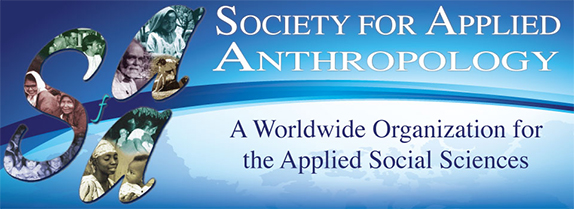
Shortly after the Ides of March, the Society for Applied Anthropology invaded Albuquerque for their annual gathering, almost 2,000 members headquartered at the Hotel Albuquerque and spread around the city. The program chair had declared that the first day would be devoted to the city and state and, as a local boy, I was asked to organize a two hour panel on water. I’ve been working on the topic for a few years now and every time I think I understand it my coherence immediately springs several leaks.
So I decided to pick four of the people whose collective knowledge about New Mexico water could fill Elephant Butte reservoir and then some. I asked them the question I can’t answer—“how do we fix this mess?”—“mess” here being a technical term meaning water governance that needs radical reform.
Panelists included Denise Fort, Research Professor of Law at UNM, an activist at many state and national levels on water management, and former Chair of the Western Water Policy Review Advisory Commission which produced Water in the West; David Groenfeldt, founding director of the Water Culture Institute and author of Water Ethics: A Values Approach to Solving the Water Crisis; V.B Price, journalist and poet, author of Albuquerque: A City at the End of the World and The Orphaned Land: New Mexico’s Environment since the Manhattan Project and founding editor of the New Mexico Mercury; and Sylvia Rodriguez, emerita in anthropology at UNM now engaged in an NSF project on acequias in Northern New Mexico and author of Acequia: Water Sharing, Sanctity and Place.
On March 18 we sat in a row behind the standard hotel conference table, some of us wishing the pitchers contained tequila añejo instead of water. I was the moderator, meaning I listened and kept time. Audiences came and went and participated in interesting ways. What I heard were a few high level ideas that could aim the state in the direction of reform. None of the four panelists are responsible for what I’m about to write, and all the mistakes are mine, but they helped me think my way further along a foggy and politically complicated path whose destination is still not clear. I have to write something about what my take on those high level premises looked like. They were simple and profound and useful.
The first: As John Wesley Powell said long ago, water governance in the West has to be local. It must be a local problem that is solved among people who share it, people oriented toward the same source. Let's say the same "basin" for the moment, though that term is more of a problem now because water from one basin can link to another, as in the San Juan/Chama. The basic idea here is that the stakeholders in the same basin will always agree on one thing. If their water supply isn't sustainable, they will all be in the same dry-docked boat. Very few interest groups, as it turns out, much as they might disagree with each other, are actually suicidal. Or maybe we should say aquacidal. The lowest possible level of water governance is where the solutions will lie, not the highest levels, far away and socially disconnected.
The second: Getting this autonomy at the basin level will take some fancy re-regulating. A local basin has water come in from some source and flow out at some mouth, in the case of surface water, or has an overlapping aquifer that serves it and other basins. The mouth of a local basin will likely be a larger basin which contains other users with whom water must be shared. Local governance will inevitably connect to other places. The federal government, for example, will participate in terms of such things as endangered species, quality regulations, federal lands, and indigenous rights. Bordering states and nations will reach in with the compacts that regulate water sharing among them. The state will reach in with its water laws and control of water rights. How can these separate distant hands reaching into a local basin integrate with local governance in a coherent way? And conversely, how can local basin governance scale up in a coherent way into these higher levels? I think this is the most difficult of the reform issues. As long as governance becomes more local, more bottom-up, I see hope. But how to make it really local looks like wading into a governance tar pit that makes me want to drop everything and look for examples in the U.S. or anywhere else in the world where it has been accomplished.
The third follows from the second: Anthropology is useful here, since its foundations rest on cross-cultural comparative research. The panel made use of this tradition with several case examples. Some were from the state, lessons learned about how to do things better, Price describing the Kirtland plume and Fort the Ute Lake development. Others were cross-cultural, like Groenfeldt’s table of different stakeholders by water values they hold and Rodriguez’s description of “convergent evolution” of bottom-up governance systems like New Mexico’s acequia communities. I could go on for pages here. The moral of the story is, there exists a massive amount of useful case material to help think outside the current governance box that New Mexico is in. That material is not often part of the conversation. It needs to be.
The fourth: There is an interesting paradox here. On the one hand, people have turned water into a commodity that is their right to manhandle to their own purposes. This, the panel and many others say, is the wrong framework. The answer does not lie in yet more ways to manhandle nature. The answer is to live in a mutual relationship with our water that panelists called "water citizenship." The question isn't how do we get more water. The question is, how do we live with the water we have in a sustainable way. The paradox comes in because we have to deflate our egos and increase our sense of connection with water, but at the same time we are the ones who have to do that. It's a call to look the “anthropocene" in the eye and, as anthros, de-anthropocize it. A shift like this, from the hubris of Trump to the humility of St. Francis, reads well in fiction, but I’m not sure how to plot it in American realpolitik.
I left the panel thinking about that odd concept used by both the left and the right, Schumpeter’s “creative destruction.” Water in New Mexico is telling us that business as usual is no longer an option. The evidence is that we’re listening more now, but most of us humans still haven’t answered in a sensible way. Maybe the crisis in water governance isn’t yet severe enough to knock the hubris out of enough of us to motivate the creative part. There are some local successes in “water shortage sharing” that were featured at the recent Water Dialogue meeting. Maybe the best plan is to gather and track those cases, and others like them from the rest of the world that foreground bottom-up solutions, so that we at least have some ideas at hand when the destruction pushes us over the tipping point and forces us into the creation part.
It was a panel rich in brain food. I wish we had videoed it.




Responses to “Anthropology on Water”